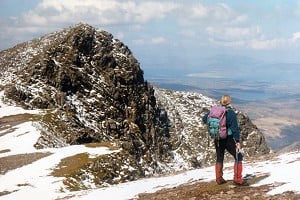
Despite the difficulties, David Reilly hasn't let cerebral palsy keep him off the hills. He would encourage everyone, whatever their ability, to get outdoors. But when it comes to hillwalking for people with a disability, opportunities still seem limited, he says.
I can't remember a time in my life when I wasn't interested in the outdoors and hillwalking. Having cerebral palsy was just something I had to deal with, and I never thought of my disability as something that would stop me.
I must have got a taste for the outdoors at a very early age. I can still remember the carrier that my dad would put me in and transport me on his back. My dad carried me for miles over hills and along beaches until I must have become too big and heavy. I think eventually dad hurt his ankle carrying me over some rocks on the beach and that was pretty much the end of that chapter. My walking really wasn't very good in those days, I think I was four when I took my first steps. Throughout my childhood walking anywhere was a problem and balance was certainly not my forte. They said I would have tripped over a matchstick. I do remember having a buggy, an oversized pushchair and oh how I used to resent having to use it.
"I would encourage any disabled person who would like to participate in outdoor sport to make that known and to seek out opportunities"
When walking was difficult
Despite walking being such an issue for me when I was wee, it didn't seem to stop us going out as a family and exploring the outdoors. We lived in a very small country town in East Lothian surrounded by hills, countryside and beaches. Our weekends were filled with exploring the outdoors and we had a wonderful time doing so. At the age of around eleven, I joined the local Scout movement where I would participate for the next five years. Through Cubs, Scouts and Venture Scouts, I got the opportunity to try many different activities most of which were outdoors. With the Scouts I would go camping, canoeing and abseiling. I'll never forget having done my first rock climb. Someone from the Scouts came home with me to tell my parents what I had done and they were aghast! I had the chance to try a lot of things that I wouldn't otherwise have been able to pursue.
There were frustrating times as well though. I do remember not being allowed to go hiking with the Scouts and how mad that made me. They would go up to Glenshee skiing for the day, and I wasn't allowed to go and try that either. Seems quite ironic knowing how many times I've skied in the French Alps now. There is no doubt however that I was not as fit and able as I am now. I probably wasn't allowed to go to certain things for good reason but when you are a child it's hard to understand these things.
University, and discovering the Munros
By the time I left home when I was a teenager and went to college, the outdoors was obviously such a part of me that it would never leave me. I was in special education for four years in England and I remember missing home, missing the Scouts and the outdoors. However, after four years of specialist teaching I got enough qualifications to get myself into university in Dundee. As soon as I settled into university life I was able to pursue my love of the outdoors again. I very quickly joined the university hillwalking society and that was the start of a lot of great times. I remember my first walk with the university club, the loop of Loch Brandy in Glen Clova. I think it rained from the moment we left the bus until we got got back down again. I do remember the wonderful feeling of invigoration and feeling so alive again beside the roaring fire in the Glen Clova Hotel afterwards.
"I really discovered myself through hillwalking and started to do things I wouldn't have dreamt of in the past"
Over the next four years I would really discover myself through hillwalking, doing things I wouldn't have dreamt of in the past. It was around this time I first learned what a Munro was. A family member took me hillwalking and we climbed Schiehallion, my first Munro. That was the start of my Munro walking career and was something that stayed with me throughout university. Before I knew it I was climbing Munros, sometimes in the snow, and having a fantastic time. Suddenly I was doing things that I, and my family, would never have thought possible. I quickly made friends with people who were a bit more patient than those in the University club and we started doing our own walks at a slightly slower pace. We still had some long days on the hills often leaving home sharp in the morning to catch enough daylight to climb a Munro. I think that the mountain I am most proud of climbing is Bidean nam Bian in Glen Coe. I'll never forget the feeling of getting up onto the ridge, how narrow I thought it was and how exposed. It was a truly incredible feeling and one that I hope to experience again.
During my time at university I climbed around 25 Munros and felt quite proud of that. The effort and strain that it put me under was great, but the reward always seemed to outweigh this. Again, I could become really frustrated with my limitations at times. I used to, and still do, grow exceptionally tired and find the effort that is requires of me takes its toll usually for a few days after. I suffer a lot of pain in my joints which has been attributed to my cerebral palsy. It is what it is however, and I have to accept it. It's not enough to stop me from being outdoors and wanting to climb mountains because the benefits far outweigh any discomfort. Another issue has been my energy levels. Although I have much more energy and ability now than I used to, I still get very tired and don't have the same stamina as others. This has been a problem at times when people have wanted to climb four or five peaks in a day when I can only manage one or two. However, I have met some people willing to go at a slower pace who have had the patience and understanding and they have often developed into great friendships.
Provision for disabled hillwalkers and mountaineers
There has been a real proliferation in disability participation in sport over last decade. This has, in part, been due to the success and media coverage of the paralympic movement particularly during the London 2012 games. Many sports are now accessible to disabled people who want to participate, although much development work needs to be done.
When it comes to hillwalking and mountaineering, disability participation seems still relatively low and opportunities can be difficult go come by. At times in my life I have found it very hard to find people willing and able to climb mountains with me, and my experiences have been very mixed. Even mountaineering clubs I have joined,have not always been very welcoming or accommodating. I imagine that could be for some, or all, of the following reasons:
- Mountaineering is dangerous and involves a certain amount of risk
- People generally don't like the idea of being, or feeling like they are, 'responsible' for another person on the hills
- People's leisure time is often short and they want to achieve as much as possible in it
- People always think someone else will have the time but not them
- Also there may be a tendency for people to walk with a disabled person the once, and then to feel they have 'done their bit'
There are still a lot of attitudinal barriers that prevent disabled people taking part in outdoor sport, too. For example:
- Many people don't imagine outdoor sport is an option for disabled people
- Others tend to make decisions of behalf of disabled people
- Disabled people are not seen as equal outdoor partners
Thankfully there are a couple of organisations that have for a long time provided disabled people with the opportunity partake in outdoors sports more generally. The Calvert Trust for example have outdoor centres in the north of England and on Exmoor, and offer holidays for disabled people.
I am pleased that both the British Mountaineering Council (BMC) and Mountaineering Scotland (MS) have worked hard to create policies on equality of opportunity to protect all minority groups, including disability. For example, here is the MS Equality Policy ... and here's an encouraging article from the BMC
Words on a page are one thing but it remains to be seen whether or not this will really make it easier for disabled people to access the great outdoors. I have always found people's attitude to be one of the biggest barriers to getting opportunities, so I'm not sure how policy documents alone might change this.
For my part, I would encourage any disabled person who would like to participate in outdoor sport to make that known and to seek out opportunities. The more of us who do, it can only help to create better facilities for disabled people both now and in the future. I would suggest that a disabled person should make contact with their local club or group. It is important to state what your needs are but also make clear what you can do. It may also be advantageous to make contact with the club committee and see what their policy is towards disabled people. Discussion and dialogue are everything, and this protects both you and the club.
"The mountain I am most proud of climbing is Bidean nam Bian in Glen Coe. I'll never forget the feeling of getting up onto the ridge, how narrow I thought it was and how exposed. It was a truly incredible feeling and one that I hope to experience again"
My outdoor life today
Today, walking and being outdoors is central to my life and I have great plans for years to come. I have been camping and walking more recently and enjoying that very much, accepting my limitations. I have learned when to push myself that little bit harder and when to be kind to myself. I still get it wrong sometimes, but like to think I am developing a better balance. I still experience a lot of pain in my joints after and sometimes during a walk. I try my best to manage the pain and deal with it as best I can.
Last year, after a camping trip to the north coast of Scotland, I began to write and blog about my experience in the outdoors. I had been writing as a freelance journalist for over ten years but I wanted to write about and communicate something I loved and was passionate about. Over the last year I have done lots of walking and cycling. Through writing and blogging about my experiences I have been able to make contact with a range of different people. From this, some opportunities have arisen that I am absolutely delighted about. Through sharing my experiences I hope, in even the smallest way, to encourage and motivate others to enjoy the outdoors.
Of course, I have ambitions for my outdoor life, and things I would like to achieve. However, one thing that I have learned is the value of the experience itself. It is good to go on adventures but all our experiences are personal to ourselves and only ourselves. The challenges that some people set themselves can seem much greater than ours. I've learned not to compare myself to others. I may never complete all the Munros but my joy will be in trying. For some of the more difficult ones I would need to find some willing volunteers to support me. I hope that happens one day, but meantime, I plan to go on enjoying the outdoors for a long time to come.

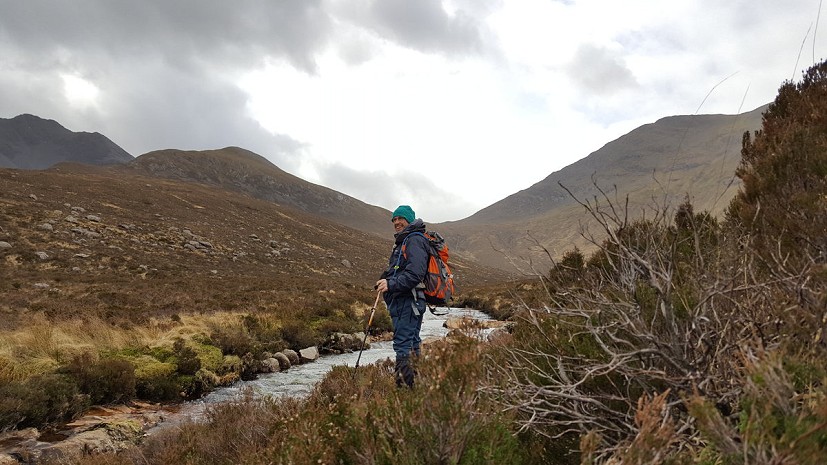
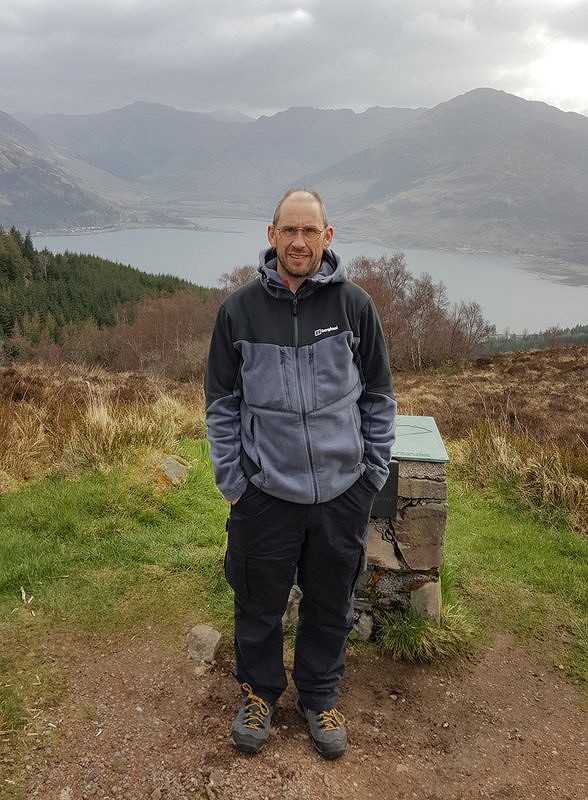
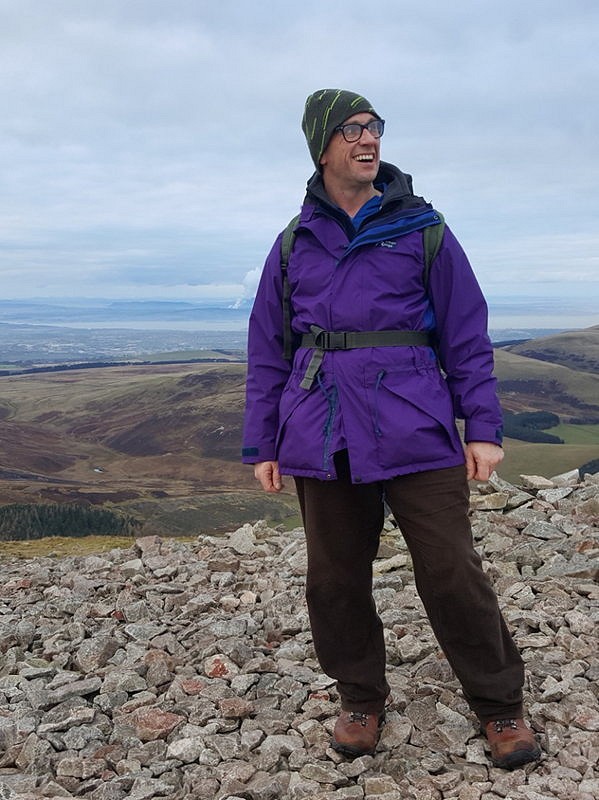
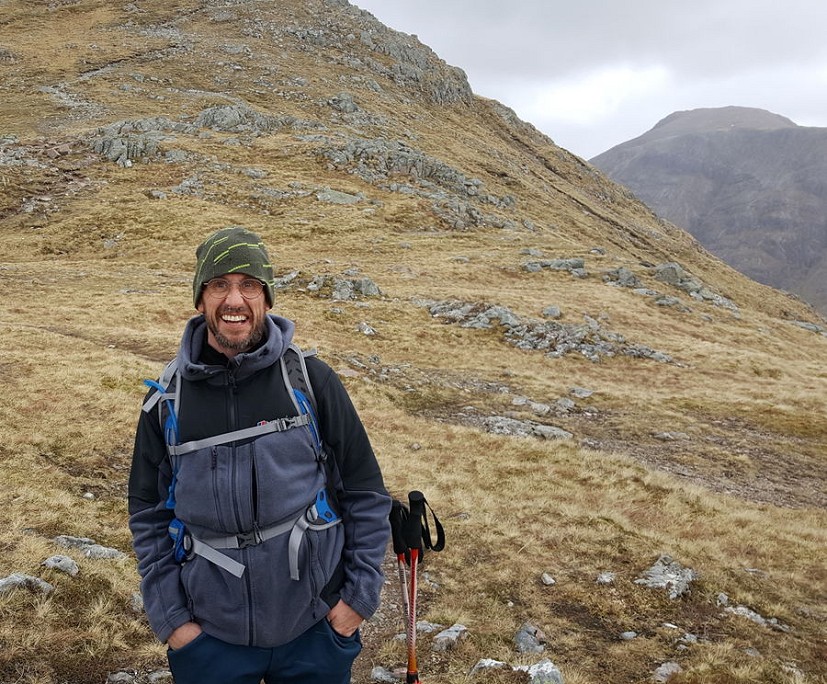
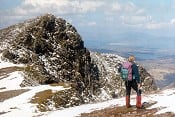


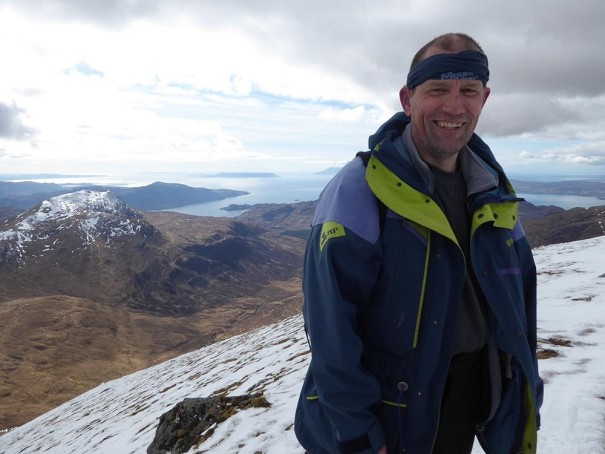
Comments